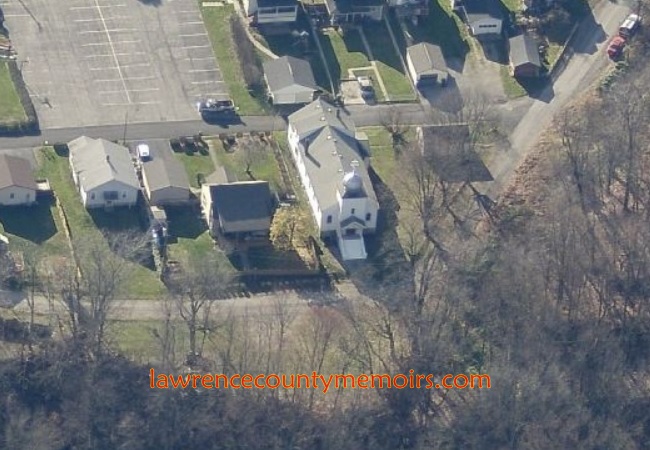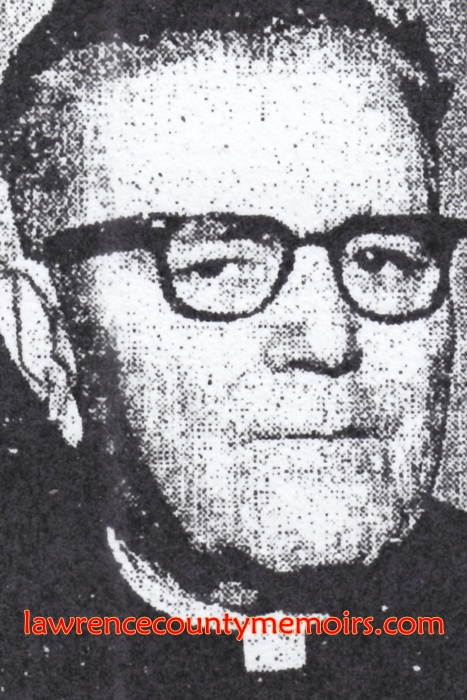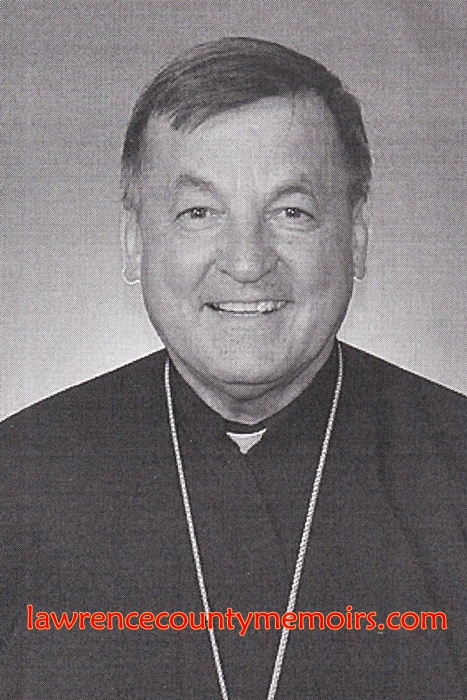In the mid-1920’s a small group of Rusyns, an ethnic group from the dual monarchy of Austria-Hungary in Central Europe, started holding religious services in private homes in Ellwood City, Pennsylvania. This is some dispute on the origin and actual heritage of the Rusyns, who are sometimes referred to as Carpatho-Rusyns, Carpatho-Russians, or Ruthenians. These days most people identifying themselves as Rusyns reside in the modern-day Slovak Republic, Ukraine, or Poland.
These close-knit immigrants, many of whom were employed at the nearby National Tube Mill, practiced their own distinct brand of the Eastern Orthodox religion. With married priests within its ranks the Orthodox Church was often at odds with the mainstream Roman Catholic authorities in the United States. On a larger scale the Eastern Orthodox Church had been at odds with the Roman Catholic Church since a schism (concerning the authority of the Pope) dating back to the 11th Century. This was essentially a battle between the East and the West – the Greek-speaking Eastern Orthodox (also known as Greek Catholics) against the Latin-speaking Roman Catholics.
In November 1927 the new congregation purchased property off of Portersville Road in Ellport with intentions to erect a church there. In March 1928 a charter was granted for the “Holy Trinity Russian Orthodox Greek Catholic Church of Ellwood City” and later that month construction commenced on the church – on what is now Parkview Avenue in Ellport. The church was quickly completed and dedicated during a ceremony in July 1928. The distinguished Reverend Benjamin Basalyga (1887-1963), a rising figure who later became the Archbishop of Pittsburgh, was on hand to lead the dedicatory services.
The first rector (pastor) of the church was the Slovakian-born Reverend Anthony J. Romza (1881-1938), who had emigrated from Austria-Hungary in 1901 and was a veteran of religious service in West Virginia and Ohio. Some of the subsequent rectors over the years included Simon Figol, Nikifor Besmertnuk, John Obletiloff, Paul Suda, and Andrew Harrison.
The Ellport congregation became a member of the Russian Orthodox Greek Catholic Church in America (ROGCCA), formed when the American diocese of the Russian Orthodox Church declared autonomy. This was done in response to the Russian Revolution of 1917 and subsequent Russian Civil War from 1917-1922, the monumental events which resulted in the overthrow of Tsar Nicholas II and led to the Communist takeover of the county. The ROGCCA went through much change in the coming decades and in 1970 became the independent Orthodox Church in America (OCA).
The Holy Trinity church established its own cemetery in Big Beaver Township near Koppel in about 1960, but only a few dozen people have been buried there over the years. Most deceased members of the congregation have been interred at Locust Grove Cemetery in North Sewickley Township. On April 26, 1971, eighty-year-old Louis Talpash of Ellport, the last surviving founder of the congregation and chairman of the church building committee, passed away and was interred in Locust Grove Cemetery.
The Reverend John G. Sidor, who emigrated from Czechoslovakia in 1965, took over as rector at the church in 1972 and served the small but loyal congregation for many years. The New Castle News of Saturday, September 24, 1988, reported, “A combined celebration of the 60th anniversary of the founding of Holy Trinity Russian Orthodox Church in Ellwood City and of its pastor’s 15 years of service to the church will be observed tomorrow. A 10 a.m. mass will be held by Bishop Kyrill of Pittsburgh, assisted by the Rev. Father John Sidor, pastor of Holy Trinity, and brother clergy. By the decision of the Holy Synod, Bishop Kyrill will award Father Sidor with the Golden Cross on the 25th anniversary of his ordination in to the Holy Priesthood.”
Sidor also served as pastor of the associated Holy Trinity Russian Orthodox Church in New Castle from 1973 until it was closed in about 1998. In recent times the Ellport church, whose parishioners increasingly came from different ethnic backgrounds, dropped the moniker of “Russian” to become known simply as Holy Trinity Orthodox Church. In 2003 the church celebrated the 75th anniversary of its founding, but I believe it closed down (and Reverend Sidor retired) just a few years after this.
 The sign for the church located along Portersville Road in Ellport. (Dec 2011) |  The front of the old church located on Parkview Avenue. (Dec 2011) |
 (Dec 2011) |  (Dec 2011) |  (Dec 2011) |
 (Dec 2011) |  (Dec 2011) |
 (May 2012) Full Size |
 The Holy Trinity Russian Orthodox Church in Ellport has been closed as an active house of worship since about 2006. (2013) |







Comments
There are currently no comments on this article.
Comment